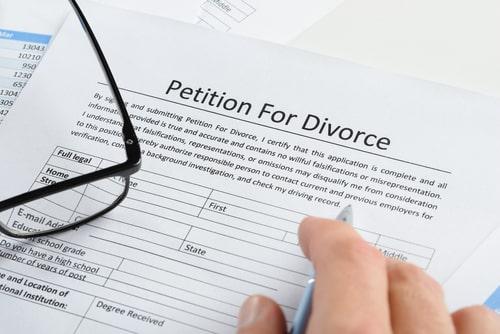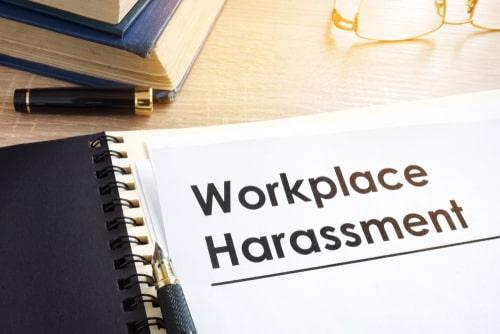Wheaton |
St. Charles |
Sycamore
 630-665-7300
630-665-7300
Recent Blog Posts
Can I Object To My Spouse's Choice of Divorce Venue in Illinois?
 The spouse who files for divorce in Illinois gets to choose the location – or the “venue” – of the divorce. This means that, by filing in a particular county's circuit court, he or she decides where the divorce will take place. However, if your spouse has decided to file for divorce in a certain venue and you do not want the divorce to be handled there, you actually have the right to contest their choice of venue.
The spouse who files for divorce in Illinois gets to choose the location – or the “venue” – of the divorce. This means that, by filing in a particular county's circuit court, he or she decides where the divorce will take place. However, if your spouse has decided to file for divorce in a certain venue and you do not want the divorce to be handled there, you actually have the right to contest their choice of venue.
Venue vs. Jurisdiction
In order to understand why a divorce can move to a different court during a divorce case, it is important to distinguish between “venue” and “jurisdiction.” Occasionally, people will use these terms interchangeably, but they are not the same. Venue refers to the county court in which the case is heard. As stated earlier, divorce in Illinois is handled by the circuit court of the county in which the divorce is filed. The standard choice of venue is a circuit court in the county in which one or both spouses live. Jurisdiction refers to the authority of a court to hear a case. Illinois law allows jurisdiction by all county circuit courts over all divorce cases, no matter where the spouses live – if at least one spouse still lives in Illinois.
Madison County, IL, Settles Sexual Harassment Lawsuit
 A settlement has been reached in a sexual harassment lawsuit against Madison County, Illinois. The substantial settlement amount – $850,000 – was awarded to the plaintiff, an employee of Madison County, who alleged that a former Madison County board member repeatedly sexually harassed her. The plaintiff then alleged that in addition to the board doing nothing to stop the harassment, she was fired for complaining.
A settlement has been reached in a sexual harassment lawsuit against Madison County, Illinois. The substantial settlement amount – $850,000 – was awarded to the plaintiff, an employee of Madison County, who alleged that a former Madison County board member repeatedly sexually harassed her. The plaintiff then alleged that in addition to the board doing nothing to stop the harassment, she was fired for complaining.
The details in this case reflect circumstances that are often faced by victims of workplace sexual harassment. Below we will explore some of these circumstances, the relevant laws, and what you can do if you face sexual harassment at your place of employment.
A Hostile Work Environment
There are two primary categories wherein behavior of a sexual nature constitutes sufficient sexual harassment to file a civil lawsuit. One of the cases is called “quid pro quo” – when one person promises a job or a favor at work, such as a promotion, in exchange for sexual favors.
How to Change Your Name After an Illinois Divorce
 When a couple gets divorced in Illinois, a partner who shared their spouse's last name may decide they want their maiden name back. How this is done depends on whether the name change happens as part of the divorce decree or whether you wait until after the divorce is over.
When a couple gets divorced in Illinois, a partner who shared their spouse's last name may decide they want their maiden name back. How this is done depends on whether the name change happens as part of the divorce decree or whether you wait until after the divorce is over.
Changing Your Name During the Divorce
A divorcing spouse can request that a change back to their maiden name be included as part of their final divorce decree. Consult your attorney to make sure that that you are given the right to resume use of a former or maiden name as part of the court order dissolving the marriage.
Generally, part of changing your name in Illinois is publishing the name change in a local public newspaper. However, if the divorce decree includes the reversion to your maiden name, you do not have to publish a notice with a newspaper; the divorce decree will be the document that public agencies will use to change your last name on official documents.
Do We Have to Move Out to Get Divorced in Illinois?
 When a couple knows the marriage is over, divorce is inevitable. However, before couples can divorce, Illinois law requires them to meet a legal standard that shows they have irreconcilable differences, that past attempts at fixing the marriage have failed, and that future attempts would fail as well.
When a couple knows the marriage is over, divorce is inevitable. However, before couples can divorce, Illinois law requires them to meet a legal standard that shows they have irreconcilable differences, that past attempts at fixing the marriage have failed, and that future attempts would fail as well.
Couples can still live together, file for divorce in Illinois, and finalize the divorce on the same day - as long as there isn't any objection from either party. But if one party does object, or denies there are irreconcilable differences, a six-month separation period is considered proof by the court that there are irreconcilable differences and that the marriage has broken down.
In this article, we'll explore what it means to live separate and apart, and how couples who wish to do it can establish the six-month separation period.
What is a Separation Date?
Living separate and apart for six months shows that a couple has reached the point where their differences are irreconcilable, that they have considered the ramifications of divorce seriously, and that divorce is still the best option.
How to Document Sexual Harassment in the Workplace
 Freedom from sexual harassment is encoded in Illinois law under the Illinois Human Rights Act. Unfortunately, that does not always prevent people from being sexually harassed at work. A shocking half of all women have been the recipient of unwanted verbal or physical sexual harassment at work, but a very small portion of the victims in these cases hire a lawyer and go to court.
Freedom from sexual harassment is encoded in Illinois law under the Illinois Human Rights Act. Unfortunately, that does not always prevent people from being sexually harassed at work. A shocking half of all women have been the recipient of unwanted verbal or physical sexual harassment at work, but a very small portion of the victims in these cases hire a lawyer and go to court.
Proving sexual harassment can be difficult as it often comes down to relying on individual witness testimony, and it can be hard to judge whether one witness is more credible than another. Adding to the difficulty, the law requires the individual's behavior to be “severe or pervasive” to qualify as “hostile work environment” sexual harassment. This standard is subjective – meaning it is open to fairly wide interpretation – and different judges have interpreted it differently.
Keep a Log of the Harassment
If you are the victim of sexual harassment or retaliation and interested in pursuing a case against your harasser, documenting each incident and keeping records of the harassment can help. It may not be pleasant to do so, but the goal is to stop the harassment – whatever it takes. The following are some examples of details to write down:
Recovering Delinquent Child Support in Illinois
 Achieving a child support plan between two parents who are no longer together can be a very difficult task. After the court determines a payment plan based on the parents' respective net incomes, the paying parent can fall behind on payments. Sometimes this is accidental, and sometimes it is intentional; but no matter why a parent stops paying child support, the child's well-being may be compromised when funds are not available to the receiving parent to meet the child's needs.
Achieving a child support plan between two parents who are no longer together can be a very difficult task. After the court determines a payment plan based on the parents' respective net incomes, the paying parent can fall behind on payments. Sometimes this is accidental, and sometimes it is intentional; but no matter why a parent stops paying child support, the child's well-being may be compromised when funds are not available to the receiving parent to meet the child's needs.
If you find yourself in this situation, you have options available to you.
Collecting Child Support from a Nonpaying Parent
The Illinois Family and Healthcare Services Division of Child Support Services (DCSS) is tasked with enforcing child support payments. However, you should be aware that DCSS is often underfunded and understaffed, and it can often take a very long time to resolve your case. This is why it is often best to work with an experienced family law attorney. Your lawyer can expedite the process and help you pursue the financial support you and your child need through the civil court system. Once you notify the court that the paying or “obligor” parent is not meeting their child support obligations, there will be a hearing to determine the next steps.
What is a Dissipation of Assets Claim in an Illinois Divorce?
 The word “dissipation” refers to wasting or squandering money or resources. In the context of divorce, dissipation refers to the waste, destruction, or misuse of property during the breakdown of a marriage. If you are getting divorced and your spouse has spent money or assets frivolously, you may be able to recoup some of these assets through a “dissipation of assets” claim. However, only certain types of spending are considered dissipation according to Illinois law.
The word “dissipation” refers to wasting or squandering money or resources. In the context of divorce, dissipation refers to the waste, destruction, or misuse of property during the breakdown of a marriage. If you are getting divorced and your spouse has spent money or assets frivolously, you may be able to recoup some of these assets through a “dissipation of assets” claim. However, only certain types of spending are considered dissipation according to Illinois law.
Funds or Property Wasted During the Breakdown of a Marriage
According to Illinois law, the assets and liabilities obtained by either spouse during the marriage are part of the marital estate. Typically, a spouse is responsible for the other spouse's spending even if he or she did not know about the spending. Dissipation of assets, however, is a unique situation involving the misuse of assets near the end of a marriage.
Per Illinois law, dissipation occurs when assets are destroyed, misused, or spent and the spending:
What Can I Do to Get a Fair Divorce Settlement if My Spouse Lies About Money?
 Financial problems are consistently ranked as one of the top causes of divorce. Arguments over credit card debt, disagreements about how to spend money, and allegations of financial infidelity may all hasten the speed at which a marriage breaks down. If your spouse has a history of lying about money, you may understandably be concerned about how this deception may impact your divorce. In order for property division, child support, and spousal maintenance determinations to be fair, each spouse must disclose complete and accurate financial information. Unfortunately, this is harder said than done when a spouse lies about income or assets during divorce.
Financial problems are consistently ranked as one of the top causes of divorce. Arguments over credit card debt, disagreements about how to spend money, and allegations of financial infidelity may all hasten the speed at which a marriage breaks down. If your spouse has a history of lying about money, you may understandably be concerned about how this deception may impact your divorce. In order for property division, child support, and spousal maintenance determinations to be fair, each spouse must disclose complete and accurate financial information. Unfortunately, this is harder said than done when a spouse lies about income or assets during divorce.
Illinois Law Guarantees Your Right to a Fair Divorce Settlement
According to the Illinois Marriage and Dissolution of Marriage Act (IMDMA), each spouse has a right to an equitable portion of property contained in the marital estate. This may include businesses, vehicles, real estate, bank account funds, insurance policies, investments, retirement accounts, and other property acquired during the marriage. However, some spouses fail to report income or hide assets during divorce to avoid splitting the value of an asset or to sway property division agreements in their favor.
How Can I Prevent a Stepfather from Adopting My Child?
 As anyone in a blended family can tell you, navigating relationships involving stepparents and stepchildren is often difficult. Many parents struggle to accept it when an ex remarries and brings a new stepparent into their child's life. This is especially true if the parent feels that the stepparent is trying to replace him or her. If you are a father currently in this situation, you may wonder whether your child's stepfather has the right to adopt your child. The answer depends on several factors.
As anyone in a blended family can tell you, navigating relationships involving stepparents and stepchildren is often difficult. Many parents struggle to accept it when an ex remarries and brings a new stepparent into their child's life. This is especially true if the parent feels that the stepparent is trying to replace him or her. If you are a father currently in this situation, you may wonder whether your child's stepfather has the right to adopt your child. The answer depends on several factors.
Illinois Law Regarding Parental Rights
According to Illinois law, a child can only have two parents. A child may only be adopted if one or both of the child's parents is deceased or has their parental rights terminated. If you have already established paternity or parentage of your child, you are the child's father in the eyes of the law. This means that your child's stepfather cannot adopt your child unless your parental rights are terminated - either voluntarily or involuntarily. Illinois law seeks to preserve the parent-child relationship whenever possible. Therefore, it is only under extreme circumstances that a parent's rights are terminated against his or her will.
What Should I Do If I Keep Getting Asked Out by Someone At Work?
 Navigating your professional relationships with fellow workers can sometimes be tricky. Many people find themselves in awkward situations with coworkers. However, there are some circumstances in which an awkward situation with a coworker becomes a legal issue. Title VII of the Civil Rights Act and other legislation prohibit discrimination and harassment on the basis of sex. In some cases, asking a coworker on a date is a violation of state or federal sexual harassment laws.
Navigating your professional relationships with fellow workers can sometimes be tricky. Many people find themselves in awkward situations with coworkers. However, there are some circumstances in which an awkward situation with a coworker becomes a legal issue. Title VII of the Civil Rights Act and other legislation prohibit discrimination and harassment on the basis of sex. In some cases, asking a coworker on a date is a violation of state or federal sexual harassment laws.
Supervisors Who Ask Out Subordinates May Be Accused of Quid Pro Quo
Quid pro quo harassment involves a superior using his or her authority to gain some type of sexual or romantic benefit. If your manager or supervisor has asked you out on a date, it could be argued that he or she is attempting to use his or her authority to coerce you into accepting. This is why most workplaces have strict policies prohibiting romantic relationships between superiors and subordinates. A supervisor does not need to explicitly offer work benefits in exchange for a date to be guilty of quid pro quo harassment. Even the implication of better pay, a more desirable work schedule, or other job-related benefits may constitute quid pro quo harassment.


 Read More
Read More





